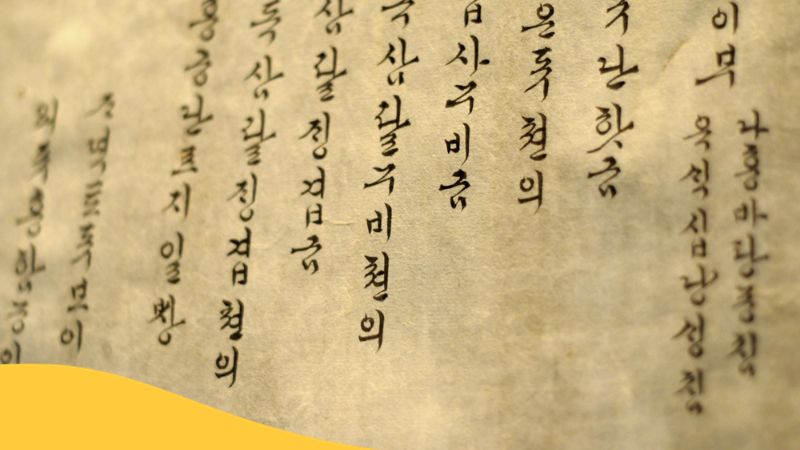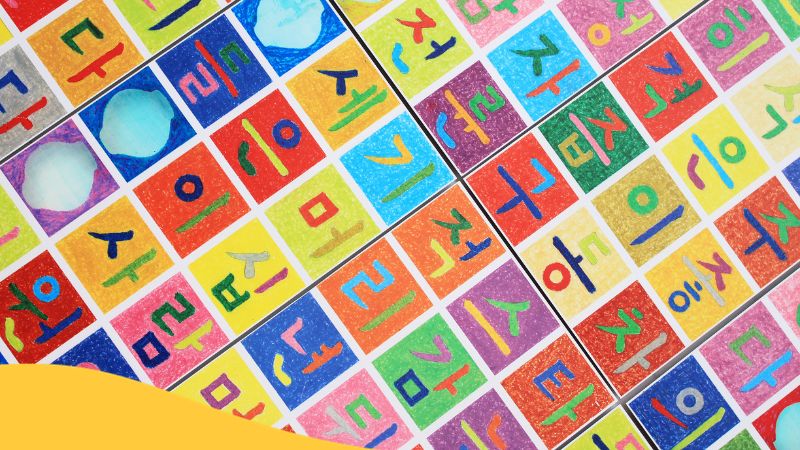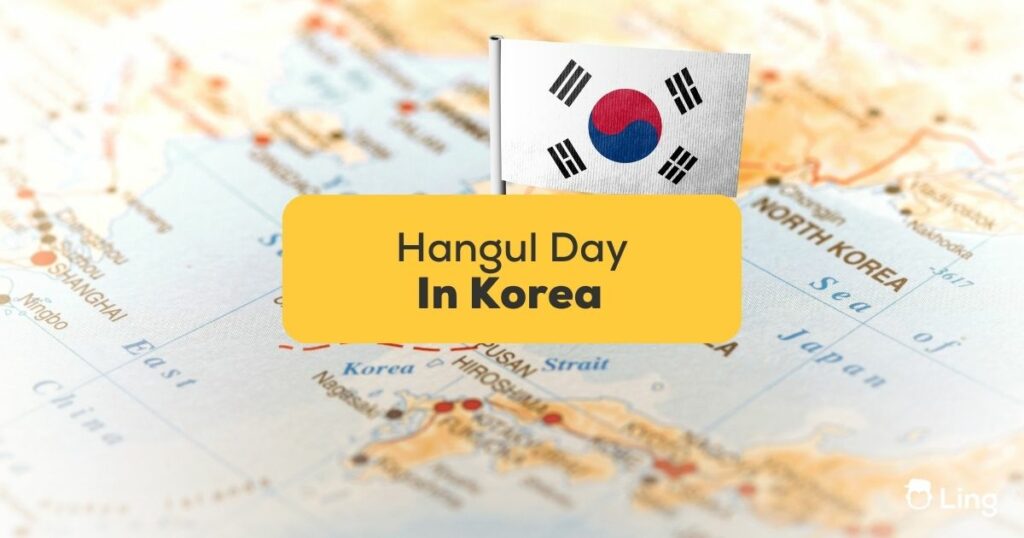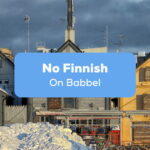Hangul Day or 한글날 (Hangeulnal): Ever heard of it? If not, buckle up! We’re about to embark on a whirlwind journey through Korean history that’s as gripping as your favorite drama series. And if you’re thinking it’s just another date on the calendar, oh, how mistaken you are. This one’s packed with pride, identity, and a tale that could rival any bestseller.
Before Hangul strutted onto the scene in the mid-15th century, the Korean scene was all about Classical Chinese. Picture trying to chat with friends using a language that feels like you’re deciphering hieroglyphs. Not ideal, right? That’s when King Sejong the Great had a lightbulb moment. Why not create an alphabet that’s easy-peasy and tailor-made for the Korean tongue? Enter, Hangul.
Now, what’s the buzz about Hangul Day? Let’s find out!
What Is Hangul Day?
In Korean, it’s “한글날” (Hangeulnal). Celebrated in both the North and South (though on separate days, because, well, reasons), this day is a vibrant confetti explosion for the creation of Hangul.
Here’s a tiny history tidbit for you: King Sejong, the genius behind Hangul, had a grand vision. The Classical Chinese script? Too posh and complicated for the average Jo. So, he rolled up his royal sleeves and, with his squad of scholars, crafted a script that was as Korean as Kimchi. It wasn’t just about writing. It was about making sure everyone, from the market vendor to the noble, could understand and be understood.
In essence, Hangul Day isn’t just a day. It’s a love letter to a king’s vision and his passion for his people. It’s a nod to the belief that language should be everyone’s cup of tea. More than that, it’s the heartbeat of Korean identity, a testament to a nation’s unyielding spirit, and a testament to safeguarding its rich tapestry of culture.

When Is Hangul Day?
South Korea’s Calendar Alert: October 9th. Wondering why? On this day, way back in 1443, King Sejong the Great dropped a major announcement: the birth of Hangul. It’s like the Apple Event of the 15th century but for language. Since then, this date’s been underlined, starred, and possibly even bedazzled to honor such a pivotal tick in Korean history. And guess what? Between 1945 and 1991, and from 2013 till now, it’s been a day off! Yep, a national holiday for South Koreans to dive into festive celebrations and perhaps sit with a cup of tea, reflecting on the magic of their script.
North Korea, on the other hand, parties on January 15th. Why the different date, you ask? Well, it’s believed that in 1444, on this exact day, the ink dried on the final version of Hangul. North Korea dubs this “Chosongul Day,” but the essence remains the same: celebrating the genius of Hangul. Whether it’s the South’s October vibes or the North’s January jubilation, both days shine a spotlight on the sheer brilliance of this script.

Is Hangul A National Holiday In Korea?
South Korea and Hangul Day have had quite the on-again, off-again relationship. Picture this: it’s 1945, South Korea’s freshly liberated from Japanese rule, and there’s this buzzing excitement about Korean identity. Hangul Day is crowned a national holiday, making it a day of pride, reflection, and—yes—a delightful break from the 9-to-5 grind. But plot twist! 1991 rolls around, and economic pressures whisper, “Maybe fewer holidays?” And just like that, Hangul Day is friend-zoned to a “national commemoration day,” meaning no more snooze buttons on that day.
But you can’t keep a good day down for long! Fast forward to 2013, after countless public appeals and impassioned op-eds, South Korea and Hangul Day go Facebook official again: it’s back to being a full-blown national holiday. This wasn’t just about getting an extra lie-in; it was Korea tipping its hat to Hangul’s cornerstone role in its identity.
Now, take a detour north.
North Korea labels it “Chosongul Day,” and while it doesn’t come with the perk of a day off, it’s no less revered. Schools, institutions, and communities come alive with educational shindigs and cultural fiestas, all singing praises of the Korean script.
In a nutshell? South Korea gets to put its feet up and revel on Hangul Day, while North Korea, despite not making it an “official” holiday, ensures the day is anything but mundane. But across both borders, the day’s essence—celebrating and safeguarding Korean identity—is loud, proud, and utterly indisputable.
How To Celebrate Hangul Day?
Hangul Day isn’t just a blip on the Korean calendar; it’s a crescendo of cultural cheer, historical high-fives, and identity affirmation. From the bustling streets of Seoul to your cozy reading nook in Maine, here’s how you can jump on the Hangul Day celebration wagon:
Learn Hangul
Always fancied learning a new script? Now’s your golden moment! The digital world’s brimming with apps, online lessons, and peppy tutors to get you scribbling away. Set a challenge: Can you jot down ‘Hello’ in Hangul by sundown? For more tips about the writing system, check out our comprehensive guide.
Engage In Cultural Activities
In the heart of Korea, centers brim with Hangul-centric events. Try your hand at delicate calligraphy, soak in a lecture about Hangul’s timeline, or get poetic at a reading session. If you’re sipping tea in another country, give your local Korean embassy a ring. Who knows? They might be hosting the coolest Hangul bash in town.
Visit The Statue Of King Sejong
If you’re wandering around Seoul, swing by Gwanghwamun Square. Here stands a majestic statue of King Sejong, the brain behind Hangul. While you’re there, dive into the ‘Sejong Story’ exhibit and become a Hangul historian in no time.
Hangul Day Crafts
Perfect for the kiddos (or the kids-at-heart)! String together a Hangul necklace, craft bookmarks, or let those crayons loose on Hangul-themed sketches. Educational? Yes. Fun? Absolutely.
In the grand scheme of things, whether you’re fluent in Hangul, just starting out, or purely in it for the cultural ride, Hangul Day is all about embracing, learning, and dancing (literally or metaphorically) to the rhythm of Korea’s linguistic heart.
Learn Hangul With Ling
As we learned in this post, hangul isn’t just scribbles on paper—it’s the soul of Korea, a story of tenacity and cultural swagger. Getting to know it is like sharing a secret handshake with an entire nation. Feel like diving in deeper and having a chat in Korean? I’ve got your back. Head over to the App Store or Play Store, and snag the Ling app. Trust me, it’s your ticket to ride the Hangul wave. Let’s start learning together!



































































